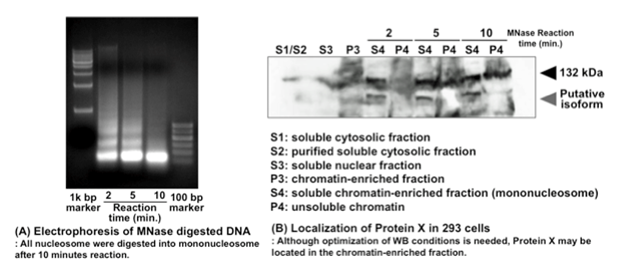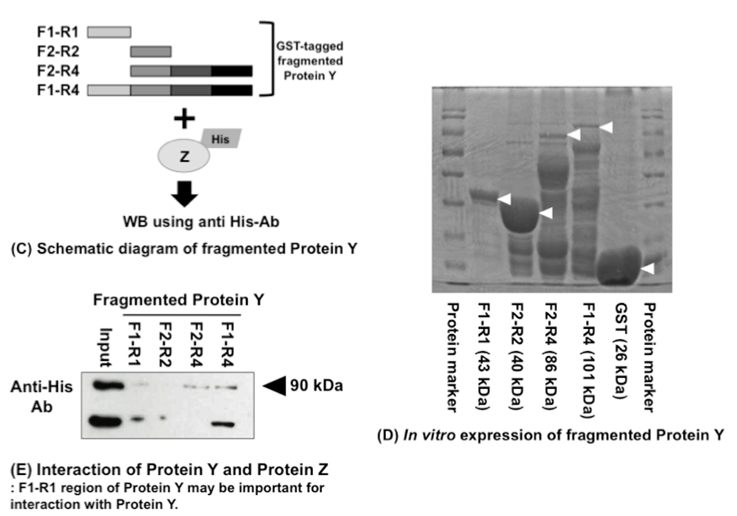Dr. Hattori stays in Peking University HSC, China
A3 Foresight Program: Education Program for Young Researchers
Report of visit to Peking University Health Science Center in China (March 7 - March 14, 2010)
Naoko Hattori (Carcinogenesis Division, National Cancer Center Research Institute)
Host researcher
Prof. Wei-Guo Zhu, Ph. D (Peking University Health Science Center)
Summary
I visited Prof. Zhu’s laboratory at Peking University Health Science Center under the education program for young researchers of JSPS A3 Foresight Program from March 7-14, 2010. During my stay, I learned basic techniques of biochemical analysis, which are important to reveal the interactions of epigenetic factors, and epigenetic mechanisms. I really think this experience was worth a lot for my future research because what I learned gave me new ideas for my further studies, and communicating with young Chinese researchers and being exposed to Chinese culture were motivational.
Contents
Experiments
1. Identification of subcellular localization of Protein X (histone demethylase)
To reveal the localization of Protein X, whole proteins were isolated from cytosolic, nuclear and chromatin-enriched fractions of 293 cells. Western blotting was performed using the antibody of Protein X.
The procedures are as follows:
☆ Isolation of proteins of cytosolic, nuclear and chromatin-enriched fractions
☆ DNA extraction from chromatin-enriched fraction
☆ Micrococcal nuclease digestion to isolate mononucleosome chromatin fraction
☆ Western blot analysis

2. Identification of interacting domain of two proteins
To reveal the important domain for the interaction of two proteins (Protein Y and Z), fragmented GST-tagged Protein Y and His-tagged protein Z was expressed in bacteria. After protein purification, GST-expressing proteins were immunoprecipitated with glutathione beads. His-tag expressing proteins were isolated using a Fusion Protein Purification Kit. Isolated proteins were incubated, and then immunoprecipitated with glutathione beads. Western blotting was performed using an anti-histidine antibody.
The procedures are as follows:
☆ In vitro expression of GST-tagged Protein Y and His-tagged protein Z
☆ Protein purification
☆ Confirmation of proteins by Colloidal Coomassie Staining
☆ Western blot analysis

3. Confirmation study on SRF methylation and metastasis of gastric carcinomas
According to our recent work among Chinese patients, methylation of SRF was negatively correlated with metastasis of gastric cancer. It would be more valuable if this result could be confirmed among patients from different countries. So we carried out the validation study using gastric cancer samples from 82 Japanese patients at Prof. Ushijima’s lab at Carcinogenesis Division in NCCRI. The SRF CpG island was amplified with the same CpG–free primer set I used in China. The DNA samples of gastric carcinomas were extracted and modified with bisulfite ready before my visit. Since a single band of SRP PCR product was obtained from 78 samples, methylation status of SRF in these samples was analyzed by DHPLC. A significantly negative correlation between SRF methylation and metastasis of gastric carcinomas from Japanese patients was observed. Taken together, those results indicate that SRF methylation may be a potential biomarker for prognosis of gastric carcinomas of patients. A joint manuscript will be written soon.

Communications
1. Attendance of Lab. Meeting on Mar. 9
2. Presentation of my current study in Lab. Meeting
3. Discussing experiments with Dr. Wang Xi
4. Receiving the protocol for sequential ChIP assay from Dr. Wang Xi
Acknowledgements
I sincerely appreciate Prof. Wei-Guo Zhu for the kind reception and for all the arrangements for my stay at Peking University. I really thank Dr. Wang Xi for instructing me in all the experiments and for arrangements of my daily life very much. I thank Dr. Wang Donglai for giving me great memories in China, and Dr. Zhaojun Liu (Peking Univ. Sch. of Oncology), Dr. Yang Yang and all laboratory members for their generous help and warm hospitality.



